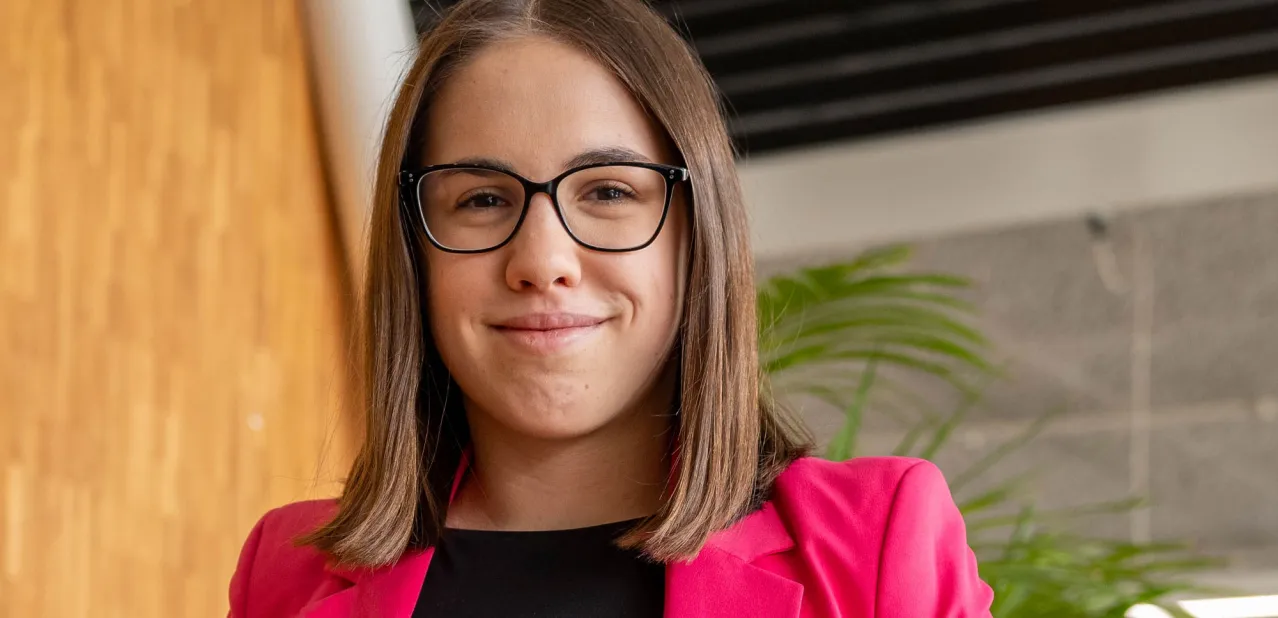Nóra Kecskés

While studying for her bachelor's in tourism and hospitality in Hungary, Nóra Kecskés didn’t get a chance to study abroad but it was an experience she was keen to have. She considered various options, including doing another bachelor’s degree and focusing on online marketing before settling on the Master’s in International Leisure, Tourism and Events Management at NHL Stenden.
“Now that I’m here in Leeuwarden, I’m making use of every opportunity I can to travel. I’ve already travelled round the Netherlands quite a lot and in the final module of my master’s we choose an elective subject that takes place in either Nepal, Italy, Portugal or the Netherlands. The one in Portugal is a Short Advanced Programme on ‘Critical Events Perspectives’ offered by RUN-EU (the European network of universities NHL Stenden is part of). It covers sustainability, the impact on the host community and sustainable destination development and the aim is to develop an event intervention strategy for the Portuguese Tourist Board that will enhance visitors’ experiences. At the moment, the destination is mainly known as a surf village, but it can offer so much more. Half of my class is going, so I’m interested to see how that will work out.”
“My main interest with this master’s is the MICE industry, Meetings, Incentives, Conferences and Exhibitions. I enjoy the other aspects too, like tourism with all its diversity and different fields such as urban tourism, adventure tourism and events management. I think events management is increasingly connected to tourism and that makes it particularly interesting for me. Like when I came to the Netherlands at the start of my studies, I was in a plane with lots of people coming back from the big music festival in Hungary. They carried the festival vibe – and tiredness – with them, and I wonder how many of them saw anything of Hungary beyond the festival. The mix on the programme gives us a chance to learn about the industries from a lot of different angles and how they interconnect. However, my focus remains on MICE. I’ve already worked in the industry and for my thesis I’m looking into bleisure tourism, so how people can mix their business and leisure trips. A business trip can be a lovely opportunity for a family holiday in terms of destination and it’s good for the work-life balance.”
Continuous process
“The projects we work on are interesting and I like the approach we have where we work on a project for a whole module. It’s different to what I was used to in Hungary, where you just get lectures and then have to write them up in an exam. Here, we work on a task continuously, doing research, brainstorming, creating ideas, and modifying our ideas based on the feedback we get from our lecturers and classmates. Feedback on something specific is easy to change, but we also got asked a question about the idea that we couldn’t answer. For the project to work, we needed to find the answer, doing more research and coming up with more ideas. Luckily, there’s time for this. It would be frustrating if you don’t get the questions or feedback until the final deadline as you then end up handing in a proposal that simply doesn’t work. With this way of learning, design-based education, you go back and forth in the process, fine-tuning your ideas until you get something that really does work and meets all the needs.”
“It means you have to be open to feedback from others. And you have to be interested in learning different perspectives and about different aspects of the tourism, leisure and events industry, to try and get as much out of it as you can. That’s what makes the master’s interesting, practical and useful whatever you do as a career.”
Find out more and visit the programme page for the Master’s in International Leisure, Tourism & Events Management.



